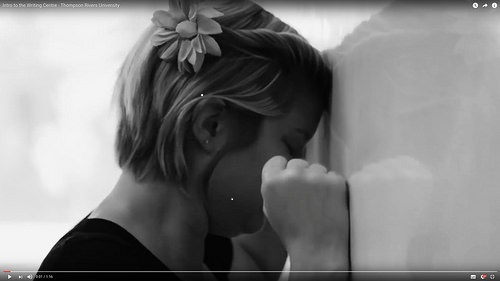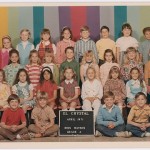There I stood in my lovely class of 1st – 3rd graders with 29 eagerly engaged students and 3 crying in agony. The cries were not from physical pain, but the emotional turmoil that sets in when we sit in places of discomfort. My heart went out to them because I’ve experienced that dreadful feeling. Yet, I was also happy for them. In fact, I wanted to celebrate. These were three of my top performing students and they finally had the opportunity to practice the skill that they needed the most but was exposed to the least: dealing and coping with academic struggle.
Let me back up a little. If you have never seen an academically advanced student hit a wall, I will tell you it is a sight to see. They are genuinely confused and out of their element like a fish out of water. All of the rules have changed. Their typical and reliable approaches do not apply. Often, they do not know how to ask for help and resort to looking at you with the expectation that you will magically “fix it”. Tell them an answer, show them a strategy, give them another lesson…anything to bring them out of the land of the upside down as quickly as possible. They look at their peers as if they are their enemies and the very idea of asking a peer for help can be interpreted as an insult.
As their teacher, I knew this day was coming. I prepared them as best I could but they did not understand the personal relevance of the lessons because they had no real reason to apply the skills. They needed little to no help. They didn’t struggle. As they demonstrated mastery they quickly found themselves excelling beyond their peers into individualized lessons. They needed bigger ideas and challenges to chunk them down to reflect on their learning and application of concepts. It was here that became difficult and they didn’t like it. They didn’t want to review lessons. They didn’t want to think. They only wanted a right answer. This was the perfect opportunity for them to learn how to be an academic scholar beyond performance.
Emotional meltdown due to academic struggle is not unique to high achieving students. What I found unique to these students was the lack of coping skills, ineffective strategies, and helplessness they all displayed. Again, they rarely ever experience this in school. They had limited to no prior knowledge to glean from. They were the genius of the family. In addition, the inability to perform academically with ease seemed to challenge their self-identities, which made them more sensitive to feedback from others. In short, they were no longer the kings of the hill and were embarrassed, afraid, and angry.
The compassion they received from their peers was amazing! They knew when to give them space and when to offer help. I heard comments from them such as “I remember feeling like that.” “It hurts when you can’t get something.” “It’s ok to take a break. I will do it with you later if you want” “Sometimes I have to put it away and try later” “Look in your notes, or we can look at them together to figure this out”. This led to class discussions that identified times we needed help, how we approached and solved the problem, how we felt, and the realization that we learn when we work on what we do not know. As in most cases, these three were better able to hear from their peers than from the adult, and they took the input. Based on their conversations, the three students began to verbalize that if we are good at everything we are learning nothing, it’s ok to ask for help, some things take more time, and we never know who can help us. They also found the value of taking notes and asking clarifying questions.
I think it would be interesting to share with you some of the strategies I used to support my three bears through this process. But, that is a story for another day.










Comments 5
This is so important to recognize and value. As a high school teacher, I see how this causes severe anxiety from kids who do not understand what they are experiencing and chalk it up to failure. By that age, it manifests into anger, depression, resentment or even learned hopelessness.
Miss Buzan, thank you for your reply. I am even more aware of this issue due to an experience my niece had in high school. She is a gifted student in multiple areas. The first time she had a true academic struggle was during her junior year in Physics. She had no idea how to handle it, how to take notes for understanding, nor effective study strategies. To add to this, her teachers expected her to just “get it” after a few clarifying comments. When she did not, they equated it to her not doing her best, which did NOT help the situation. It was a hard time, but we all learned from it.
Hi Yolanda-
Thanks for posting this piece. You have captured a moment many of us do not see with our scholars. I have a group of 3-5 grade scholars I work with in school-wide leadership roles, I would like to share this piece with them and get their reaction. I wonder what their thoughts might be and if they have been in this situation before.
If you were able to do this, please let me know how it turned out. I am interested in their perspectives.
I see academically gifted students hit the wall all the time in my 8th grade algebra for high school credit. Many of them have never been challenged before and it’s a real shock for something to not be easy. One group that suffers a lot are fast calculators. When they get hit with problems that they can’t solve quickly with just arithmetic, some of them crash, and it takes a lot of work to get them to move away from what’s always worked and put them ahead but won’t work now and is holding them back.